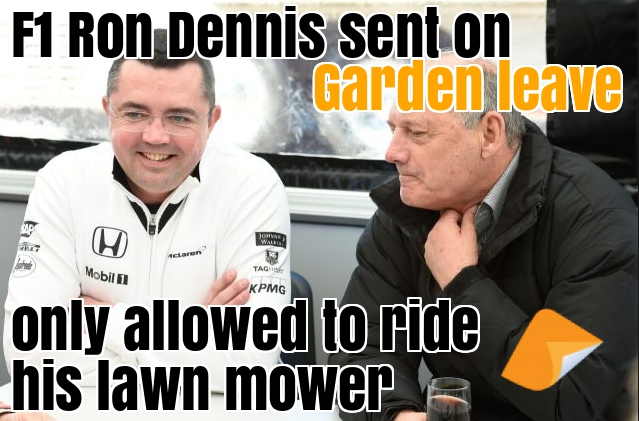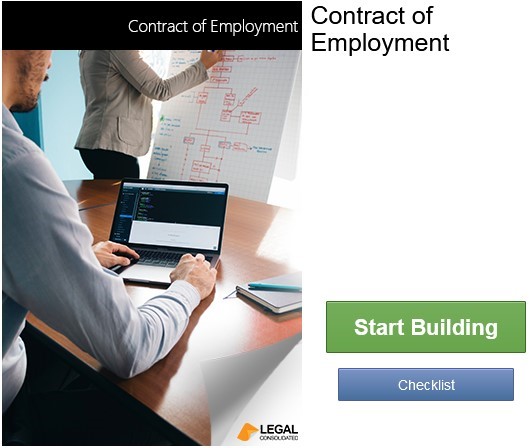Ron Dennis vs McLaren F1 team
Ron Dennis and the McLaren F1 team had a fight. Even the world of Formula 1 is not protected from the clutches of employment law. It’s a perfect example of Garden leave.
What is garden leave?
‘Gardening leave is a colloquial term. It is when an employer insists that an employee stays away from work. This is for the duration of the notice period. The employee is still paid.’: Justice Habersberger, Victorian Supreme Court.
Every Employment Contract you build online contains a ‘garden leave’ clause’. Build Employment Contracts online here. Garden leave is a valuable tool in the employer’s toolkit. Especially when an employee has corporate knowledge.
Garden leave allows the Employer to remove duties from an Employee. It excludes them from the workplace. This is while they serve out their notice period. It does not matter which party gave notice. Garden leave requires the Employee to stay at home. This is in the garden if they wish.
The value of Legal Consolidated’s Garden leave clause? It prevents your employee from contacting fellow employees and clients. This is while expressly preserving the employee’s obligations of confidentiality and fidelity to the employer. It is an excellent business protection tool.
Is it a suspension?
It is not a suspension. No wrongdoing by the Employee is required. The Employee is merely directed to go on gardening leave during the notice period.
The clause is drafted so that it is at the Employer’s discretion whether to trigger the garden leave. You are not required to put the employee on garden leave. An employer has the widest discretion to put the employee on garden leave. This is for some, all or none of their notice period.
Downside of Garden leave
There is a downside for the employer. The employment contract remains on foot during Garden leave. The employer remains bound to pay the employee and provide contractual benefits. This contrasts with restrictive covenants. These continue to apply to an Employee after the employment is ended. Further, the Employer’s contractual obligations no longer apply.
Your Employer still works for you, albeit at home, away from the office. The Employer needs to be careful not to breach all the other obligations in the Employment Contract. In Actrol Parts v Coppi (No 2), the Employee resigned. The Employer directed the Employee to take leave with pay for the four-week notice period – gardening leave. The Employer required him to return his office car and telephone. The Court said that this reduced his salary and repudiated the employment contract. The Employer had terminated the contract of employment. Therefore, the Employee was free to work immediately with a competitor.
What does the clause look like?
The Legal Consolidated clause reads:
‘Garden leave
During any period of notice of termination, the Employer is under no obligation to assign any duties to the Employee. The Employer excludes the Employee from the Employee’s duties, premises. The Employee does not contact any customers, suppliers or employees (Garden leave). Garden leave does not affect the Employee’s entitlement to receive normal salary and contractual benefits.
During any Garden leave the Employee is bound by all the provisions of this Agreement. And at all times conducts with good faith towards the Employer.’
For the exact wording, see a complete Sample of our Employment Contract here.
Why is Gardening leave useful?
The clause protects the Employee while the Employer maintains control over the Employee and their behaviour and actions:
- while on Gardening leave the Employee remains subject to the express terms of their employment contract
- the exclusive service clause, that Legal Consolidated puts in all Employment Contracts. It prevents the Employee starting employment with another organisation during the notice period
- the contractual obligation of acting in the Employer’s best interest continues
- benefits include that:
- while the Employee is out of the business, they remain under the Employer’s direction. Therefore, the Employer can still require the Employee to assist with unexpected events within their knowledge
- the Employee can’t access up-to-date data such as prices, strategy, and customer and staff contacts. Therefore, the Employee goes stale. The soliciting risk reduces when the employment finally ends
But what if they lose professional standing?
However, the Employee is not forced to lose professional standing. What if the Employee loses contact with clients, staff and the Employer’s systems? The loss of professional standing is not always possible. For example:
- See Curro v Beyond Productions. Ms Curro, a television presenter, is entitled to ‘work of an appropriate quality. This keeps her name and talents before the public with reasonable frequency’. ‘The production company had no contractual right to sterilise Miss Curro’s services and keep her away from the viewing public’; and
- In Mann v Capital Territory Health Commission the Court stated that the surgeon. ‘needed an adequate amount of work to maintain his skills and his standing among professional colleagues’.
Enforce garden leave if the Employment Contract is silent?
Does the employment contract expressly provide for gardening leave? If so, then it is lawful for the Employer to direct an Employee to go on gardening leave. What is the employment contract is silent on this topic? Can the employer still lawfully direct an employee to go on gardening leave? Generally, the answer is no.
Forcing the Employee on Garden leave, without an express term in the Employment contract, breaches the law. You also lose your post-termination restrictive covenants. They become unenforceable. An express clause ensures that the Employer retains all options to protect the business.
How are gardening leave clauses enforced?
The Courts enforce the clauses in your Employment Contract. Where your Employee refuses to comply, enforcement is by way of an injunction. The court orders the employee to adhere to the terms of the Employment Contract.
Build your Employment Contract here. Speak to us on how best to answer the questions.
See also:
Written by Adj/Professor, Dr Brett Davies (Legal Consolidated Barristers & Solicitors) and Laney Kunum (University of WA)
Our Employment Contract complies with the gardening leave major cases:
Foran v Wight [1989] HCA 51; (1989) 168 CLR 385, 397-402 (Mason CJ).
Tullet Prebon (Australia) P/L v Purcell [2008] NSWSC 852; (2008) 175 IR 414.
Wood Factory v Kiritos (1985) 2 NSWLR 105, 146 (McHugh J).
Tropical Traders Ltd v Goonan [1964] HCA 20; (1964) 111 CLR 41, 55 (Kitto J).
BearingPoint Australia v Hillard [2008] VSC 115.
Euro Brokers Ltd v Rabey [1995] IRLR 206.
Hawthorn Football Club Ltd v Harding [1988] VicRp 6; [1988] VR 49.
Kazzi v Raptime [2006] NSWSC 1261.
Watershed cases:
Masterclass Enterprises Pty Limited Bedshed Franchisors (WA) Pty Ltd [2008] WASC 67.
Woolworths Limited v Olson [2004] NSWCA 372.
Otis Elevator Co v Nolan [2007] NSWSC 593.
Sargent v ASL Developments Ltd [1974] HCA 40; (1974) 131 CLR 634.
Quinn v Overland [2010] FCA 799.
Downe v Sydney West Area Health Service (No 2) [2008] NSWSC 159.
WBM v Chief Commissioner of Police (Vic) [2012] VSCA 159.
Adelaide Professional Building Solutions v Usher [2016] SADC 31.
VIP Home Services (NSW) P/L v Swan [2011] SASC 110.
Dang Pharmacy v Dang [2016] SADC 106.